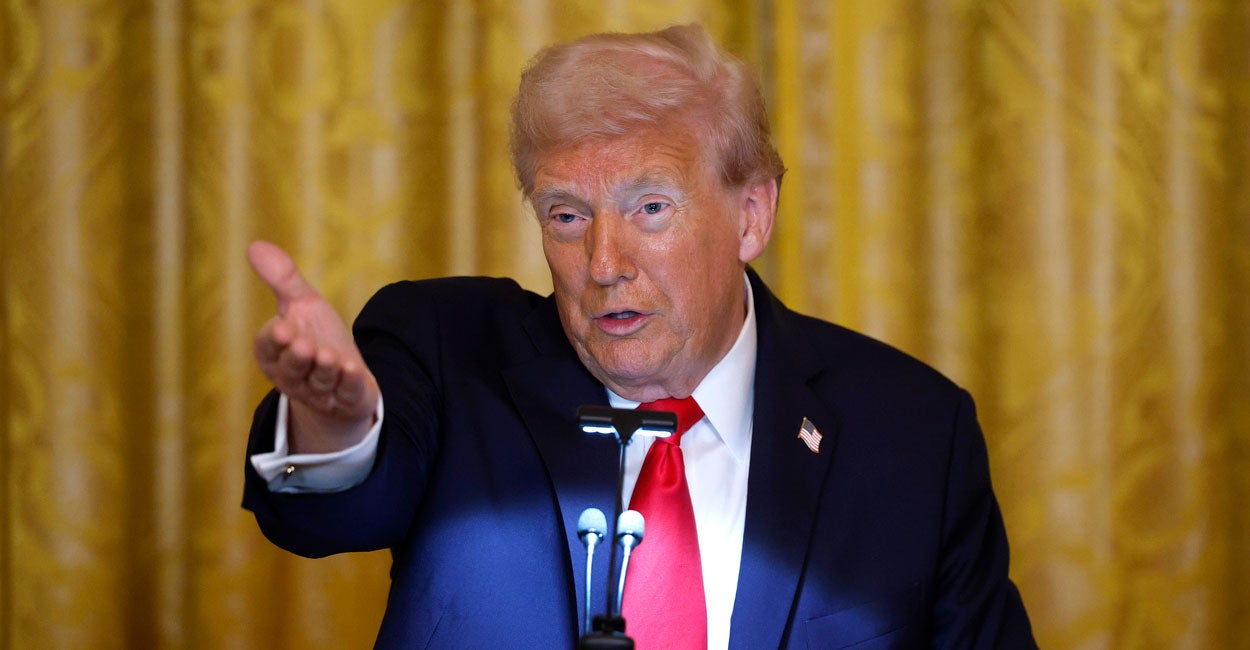Trump’s new IVF deal could’ve been a lot worse. Pro-life pressure made the difference – LifeSite
(LifeSiteNews) — When Donald Trump announced, during the 2024 campaign, that if elected he would launch an “IVF mandate,” pro-lifers were critical. As I noted in my response to his February 8 executive order calling for policy recommendations to “protect IVF access and aggressively reduce” costs for the procedure, IVF has ended countless preborn lives.
When the Trump “IVF mandate” was finally announced on October 16, it came in the form of a deal with pharmaceutical companies to “drastically reduce the cost of IVF.” Pro-life and religious leaders condemned the announcement, but it was clear that the mandate could have been worse. As ethicist Ryan T. Anderson noted when the news broke:
The Trump IVF policy is perhaps the least bad that we could have hoped for. As I understand it, there’s no IVF mandate and no government subsidies. So there are no direct religious liberty or conscience violations or concerns with taxpayer funding. But least bad is still … bad.… I appreciate that the President’s team engaged widely throughout this policy process and heard the concerns expressed by EPPC and many others. More work to be done.
As it turns out, the reason the IVF policy was “the least bad we could have hoped for” is due to the lobbying Anderson referenced. According to an October 25 report by Politico, heavy lobbying for over a year by social conservatives — both in response to the Trump campaign’s IVF promise and the Trump administration’s February executive order — had a profound effect on the final policy that was unveiled this month. Most notably, the government will not be funding IVF or requiring insurance companies to cover it.
“There were letters and meetings and calls — a lot of activity,” said Kristi Hamrick, the lead federal policy strategist with Students for Life of America, said. “We told [the Trump administration] that it would be an absolute violation of people’s conscience rights to force taxpayers to subsidize IVF, which has the business model that destroys more life than is ever born.” The Trump White House hosted a briefing call for several pro-life activists prior to the IVF announcement.
According to Politico: “The White House’s decision to stop short of an IVF mandate or taxpayer-funded program highlights the power that social conservatives and anti-abortion advocates still wield within the administration — even as their agenda has at times clashed with the secular flank of the GOP’s natalist wing that wants more government intervention to help families have children.”
A White House official confirmed to Politico “the key role anti-abortion groups played in developing the policy,” and that their “influence ensured that no employer is obligated to cover IVF, that no federal funding supports it, and that new coverage options can include alternative fertility treatments promoted by groups who oppose abortion.” The White House Domestic Policy Council consulted with pro-life stakeholders opposed to IVF as well as fertility doctors who support it. Those who supported IVF requested federal funding and mandatory employer coverage. Pro-life stakeholders “urged the administration to move away from IVF and instead promote ‘restorative reproductive medicine.’”
“A lot of people met with different people within the administration over the last eight months to say, ‘This is not pro-life. This is not going to raise birth rates. This pumps money into an industry that a lot of pro-lifers have great concerns over, because of the potential for eugenics. So let’s tap the brakes on this,’” Patrick Brown, a fellow at the conservative Ethics and Public Policy Center, told Politico.
The resulting policy made nobody happy. Social and religious conservatives oppose any attempt to mainstream IVF and disagree with Trump’s assertion during the announcement of the new policy that “you can’t get more pro-life than this.” Supporters of IVF were disappointed that virtually all their big asks did not come to fruition. Major pro-life groups like Susan B. Anthony Pro-Life America ignored the announcement entirely, indicating that they had been working hard behind the scenes.
Some IVF proponents still celebrated that the Trump policy will, in fact, make the IVF process significantly cheaper and have vowed to continue lobbying. Americans for IVF is working on draft legislation to send to Congress “to give the president some more options.” According to Politico, however, the Trump policy won’t do much:
Yet the policy’s practical impact appears limited, and it’s unclear who will benefit and when. Fertility specialists note that the newly discounted drug represents a small fraction of the average $20,000 cost of a single IVF cycle, and the administration has done nothing yet to curb the costs of the consultations, lab tests, embryo storage or implantation surgeries that put the procedure out of reach for many.
“No one’s really talking about it. It’s a nothingburger,” Flory Wilson, CEO of the Reproductive & Maternal Health Compass, told Politico. “I just don’t see how this is moving the needle in any meaningful way.” Or as Patrick Brown noted of the defanged policy: it is evidence that “the pro-life movement still has some real juice.”

Jonathon’s writings have been translated into more than six languages and in addition to LifeSiteNews, has been published in the National Post, National Review, First Things, The Federalist, The American Conservative, The Stream, the Jewish Independent, the Hamilton Spectator, Reformed Perspective Magazine, and LifeNews, among others. He is a contributing editor to The European Conservative.
His insights have been featured on CTV, Global News, and the CBC, as well as over twenty radio stations. He regularly speaks on a variety of social issues at universities, high schools, churches, and other functions in Canada, the United States, and Europe.
He is the author of The Culture War, Seeing is Believing: Why Our Culture Must Face the Victims of Abortion, Patriots: The Untold Story of Ireland’s Pro-Life Movement, Prairie Lion: The Life and Times of Ted Byfield, and co-author of A Guide to Discussing Assisted Suicide with Blaise Alleyne.
Jonathon serves as the communications director for the Canadian Centre for Bio-Ethical Reform.
Recent Top Stories
Sorry, we couldn't find any posts. Please try a different search.












